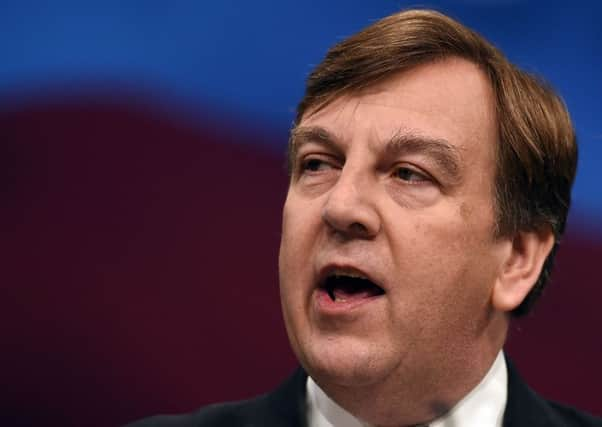Leaders: Public confidence in press regulation shaken by MP


On the face of it the decision of four newspapers not to publish a salacious story about Tory MP John Whittingdale’s sex life back in 2014 does look like a surprising one, a decision that appears to run counter to their natures and past histories.
In fact the crucial factor responsible for the apparent shift in tack was probably the timing.
Advertisement
Hide AdAdvertisement
Hide AdDuring that period, the Leveson Inquiry into press standards was making newspapers realise that the way some had acted in the past was completely unacceptable – and not just the criminal acts – and that behaviours had to change. Of course, some of this might have been self-interest given the widespread public outrage at the phone hacking (a lot of readers were not happy) and with one eye on the imminent prospect of draconian press regulation as a consequence. Ps and Qs were being minded. Any suggestion of a deal done for future leniency is simply farcical.
Fast forward to 2015 and Mr Whittingdale is now Culture Secretary in charge of press regulation, and the government is under fire from some quarters on press regulation.
The second part of the Leveson Inquiry has yet to get under way, although criminal proceedings have rightfully dictated that delay. Some of the fundamentals of Leveson, including the wholly inappropriate Royal Charter for regulation, have not been either introduced or replaced by an alternative. Indeed as things stand the only regulator of the press is the independent body the industry itself set up as a response to Leveson. Mr Wittingdale has in the past said this body, the Independent Press Standards Organisation, and the powers it wields, is “not a million miles away” from what the Royal Charter was supposed to deliver.
It is impossible to tell now exactly what the government’s role in press regulation will be, but it would be prudent to imagine it will be involved. Even if it is not, and it leaves it to IPSO and the body set up to make sure regulators were fit for purpose, the Press Recognition Panel (although IPSO has set its face against applying for recognition), the government will be accused of doing too little.
There will always be a small band that thinks not enough is being done to muzzle the press, but the public in general must have faith that a free press is being properly regulated. The problem with Mr Whittingdale being involved in that process is that if regulation is seen as too soft there will always be the accusation, no matter how erroneous, that he owed the press a favour. It would be wrong to allow that perception to cloud the issue of press regulation. It is vital the public have faith in the regulation, and have confidence in the integrity of newspapers and those who enforce their standards. Vital for the politicians, vital for democracy and vital for the press.
So it is by far the best course of action for Mr Whittingdale to recuse himself from press regulation. There must be many talented and committed politicians able to take on this one small part of his responsibilities.
Heed the warning from SCC
It can be difficult for ordinary voters to judge the true state of the Scottish economy when all most of us have to go on is a vague notion that the new gaming industry is doing well while the oil industry is suffering greatly. But ignorance is not bliss.
The Scottish Chambers of Commerce have issued a warning about Scotland’s economy which cuts through all the talk about taxes and politics, saying quite bluntly we are on a “knife edge” between growth and recession.
Advertisement
Hide AdAdvertisement
Hide AdWhat the SCC are saying in their report, carried out with the Fraser of Allander Institute at Strathclyde University, should be listened to.
This is an organisation which has its finger on the pulse of Scotland’s businesses and spends a great deal of time out in the community meeting those running enterprises and is aware of the upturns and downturns in fortune which can mean growth or stagnation for businesses.
So when it says “the government isn’t listening to the warnings,” it should sit up and take notice.
This excellent, detailed, near forensic study should leave us in no doubt about where our economy stands. It provides a clear inventory of what the incoming government taking office after the May elections needs to deal with over the forthcoming years to safeguard our country’s economic survival and provide job opportunities for future generations.
We can relate to indicators that the economy is recovering after 2008, in 2016 the global economy is beginning to falter. We must ensure our politicians take note of this report and use their powers to boost sectors doing well while turning their attention to those slipping below the radar.